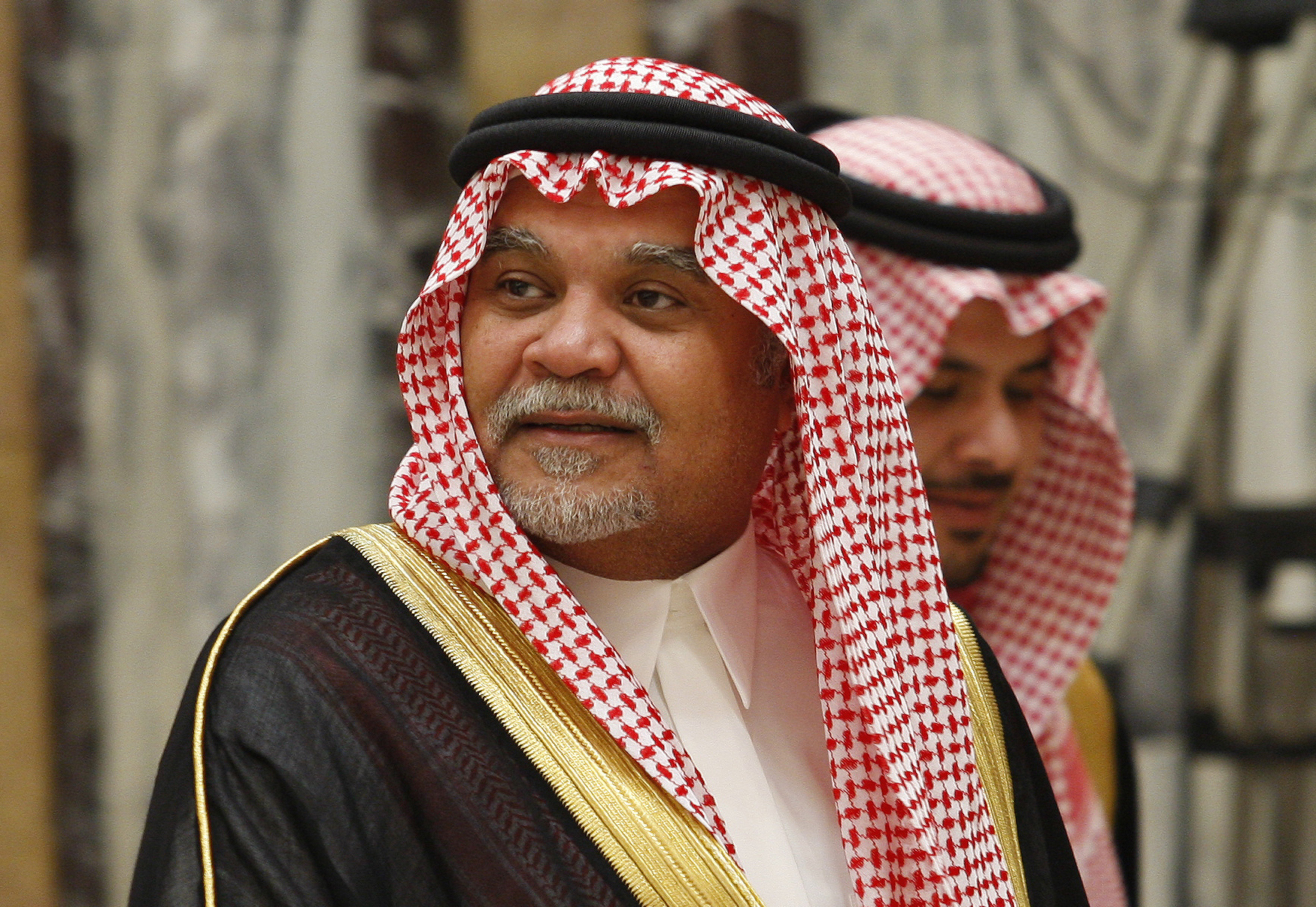Saudi Prince Bandar bin Sultan bin Abdulaziz. Photo: AP File Photo, 2008 / Hassan Ammar /NTB scanix
Saudi Prince Bandar bin Sultan bin Abdulaziz’s scathing and unprecedented attack on the Palestinian leadership, during an interview aired by Saudi Al-Arabiya television station on October 6, adds Saudi Arabia and its citizens to the growing list of Arabs who regard the Palestinians as «ungrateful.»
During the interview, the prince, a former Saudi ambassador to the US, said that «the Palestinian cause is a just cause, but its advocates are failures, and the Israeli cause is unjust, but its advocates have proven to be successful.»
He accused the Palestinians of cozying up to Saudi Arabia’s foes, Iran and Turkey, and criticized them for accusing the United Arab Emirates and Bahrain of betrayal for agreeing to establish relations with Israel.» He also accused the Palestinians of «ingratitude or lack of loyalty» toward Saudi Arabia and other Arab countries that supported them for decades.
After the interview, many Saudis and other Gulf citizens expressed support for Prince Bandar bin Abdulaziz’s criticism of the Palestinians, with some saying the time has come for a new Palestinian leadership that prioritizes its people’s interests and does not pocket the financial aid sent to them by the Arab countries and the West.
«I believe that the time has come to form a permanent Arab committee under the umbrella of the Arab League to manage the Palestinian issue and conduct face-to-face dialogue with Israel,» said Emirati columnist and political analyst Abdullah Nasser Al-Otaibi. «Today, after this very revealing and frank talk (by the Saudi prince), I strongly believe in the need for the Arabs to find a way to manage the Palestinian issue.»
Al-Otaibi is one of several Arab commentators who have recently talked about the need for the Arab countries to take matters into their own hands and try to solve the Israeli-Arab conflict without involving the failed and corrupt Palestinian leadership. This is a demand that no Arab has dared to make in the past few decades. It demonstrates that a growing number of Arabs believe that there can be no solution to the Israeli-Arab conflict as long as the current Palestinian leadership remains in power.
Saudi political analyst Fahim Al-Hamid noted that over the past several decades, the Palestinians have missed many opportunities to find a solution to their conflict with Israel.
Referring to the ongoing power struggle between the Palestinian ruling Fatah faction in the West Bank and Hamas in the Gaza Strip, Al-Hamid accused the two parties of ‘trafficking» in the Palestinian issue.
«When Israel withdrew from the Gaza Strip in 2005, it was possible for the Palestinians to seize the opportunity to achieve more gains,» he wrote.
«Hamas, however, refused to unite the Palestinians and established the foundations for the beginning of the division between the Palestinians. Instead, Hamas sought to raise funds from Turkey, Qatar and Iran.»
Praising Prince Bandar’s statements, Al-Hamid added:
«It is unfortunate that the Palestinian brothers have traded in their issue for more than 60 years and insisted on not compromising, sabotaging negotiations and rejecting all peace initiatives. The time for trafficking in the concerns of the Palestinian people is over. The interest of the people in Gaza and the West Bank requires the intervention of rational Arabs to achieve comprehensive peace in the region. We tell the Palestinians what (US) President (Abraham) Lincoln said: ‘You can fool all the people some of the time and some people all of the time, but you cannot fool all the people all the time.'»
Saudi columnist Mohammed Al-Saaed, echoing Prince Bandar bin Abdulaziz’s criticism, refuted Palestinian claims that they do not meddle in the internal affairs of Arab countries:
«Over the past six decades, the Palestinians have presented themselves as being neutral on Arab issues. However, they [Palestinians] have turned themselves into puppets in the hands of Qatar, Turkey and Iran. The Palestinians have practiced systematic terror against most Arab countries and directed their guns and bombs against the Arabs.»
Al-Saaed said that the Palestinians have also been engaging in another form of terrorism: extorting money from the Arabs «or else they count you as hostile (to the Palestinians). We must not forget their terrorist operations against consulates and embassies, assassinations of Saudi figures, as well as the hijacking and bombing of airplanes.»








